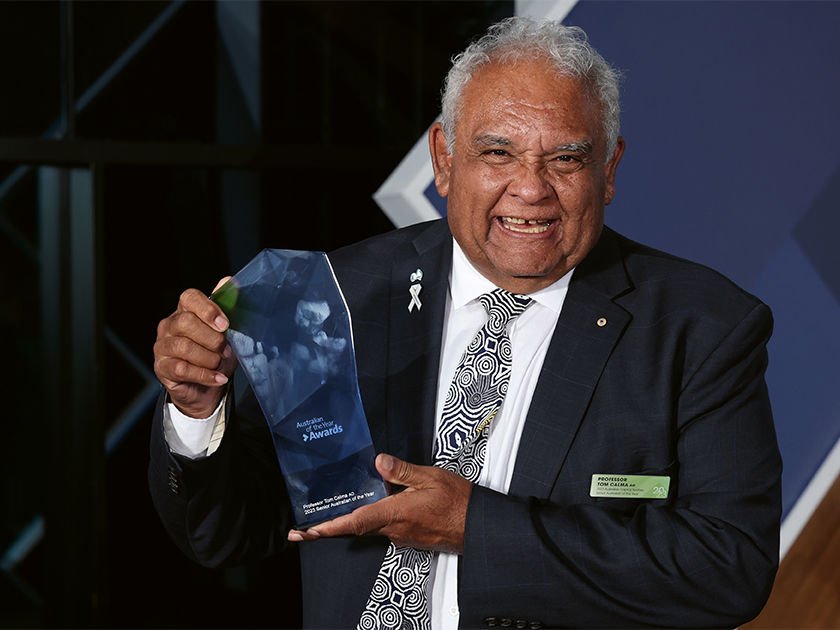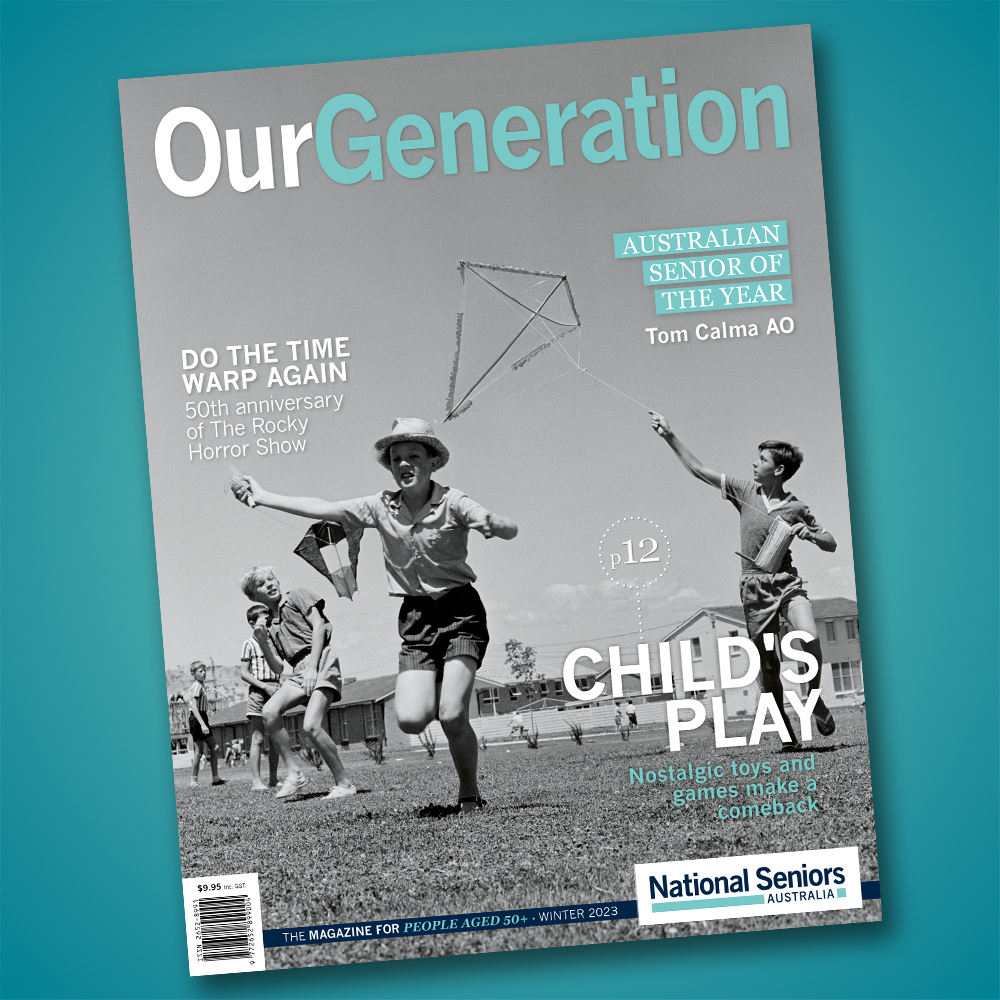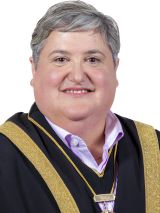The talented Mr Calma
Meet 2023 Senior Australian of the Year, Professor Tom Calma AO, who has had a lifetime of expertise and influence over many of the nation’s bigger issues.
By Kylie Triggell

Human rights and social justice campaigner, diplomat, and academic are just a few of the professions Professor Tom Calma has held in his lengthy career. In January, he added another title to the list—2023 Senior Australian of the Year. It’s a win the current Council of Elders member describes as an enormous honour, if somewhat unexpected, but is one he is also familiar with, having previously been named as 2013 ACT Australian of the Year.
Nevertheless, Tom, 69, says he still became emotional when he heard his name called out at the ceremony in January.
“They don’t tell you you’re going to win. You find out when everybody else finds out on the night. I was choked up and emotional when I won,” he says.
Tom is a Kungarakany elder and member of the Iwaidja people, born on his mother’s traditional lands at Adelaide River in the Northern Territory before moving to Darwin when he was almost three. It’s a move he describes as a positive one and motivated by his father knowing more opportunities lay in the big smoke, not only for himself but for Tom and his three sisters.
“It was a good move in the end because Dad, who was a labourer working on the roads, was able to get advancement by going to Darwin and we got access to good government schooling,” Tom says.
After completing high school, Tom made the decision to join the Commonwealth Department of Works, the same department as his father. All his sisters eventually followed suit with public service positions.
In the late 70s, Tom applied for and won a place studying social work and community development at the South Australian Institute of Technology (SAIT), which had a program specifically for Aboriginal and Torres Strait Islander people. The department he was working for provided a scholarship so Tom could undertake his studies, and the rest is history.
After graduating in 1978, Tom returned to Darwin and re-entered the public service. However, it was a chance encounter that led to the next major step in Tom’s career.
“I went to a public meeting to listen about the [higher education] opportunities being presented and left having been elected as the chair of the group to take it forward,” he says.
“This led to exposure into the higher education sector. I ended up getting a job at Darwin Community College, initially as a support teacher but I progressed and eventually got tenure, and I ended up helping to create and lead a department known as the Aboriginal Task Force.”
Tom says during his six years at the Task Force, it grew from one course of 25 students to five full-time courses and about 300 students before eventually becoming a department.
The following years saw Tom relocate to Canberra in 1992, before going on to work as a senior diplomat in both India and Vietnam, 1995-2002.
Returning to Australia in 2003, Tom then served as Senior Advisor for Indigenous Affairs to Philip Ruddock, who was Minister of Immigration, Multicultural, and
Indigenous Affairs.
“Soon after I came back to Australia, I was fortunate to win the job as Aboriginal and Torres Strait Islander Social Justice Commissioner with the Australian Human Rights Commission. At the time it was a dual appointment because I was also the National Race Discrimination Commissioner,” Tom says.
Then, in 2008 Tom was chosen to deliver the formal response to the Federal Government’s National Apology to the Stolen Generations.
Tom says he was initially asked as Social Justice Commissioner to convene meetings among the Stolen Generation groups to build awareness and support towards a national apology.
“Post-workshop, the Stolen Generations representative bodies approached me and asked if I would be their representative to speak on their behalf to respond to the Prime Minister’s formal apology,” he says.
“It’s one of the biggest honours of my life, having all these people who have experienced horrendous trauma throughout their life to have the confidence to ask me to do it.”
Even though Tom retired at 56, he has not stopped working tirelessly and most recently has been instrumental in the proposed constitutional amendment to introduce an Aboriginal and Torres Strait Islander Voice to Parliament, which will be put to referendum later this year. Tom was appointed alongside Professor Marcia Langton as co-chair of the senior advisory group leading the co-design process.
“I do a massive array of things. Things that have taken me in directions I've never thought about. Education is one, Indigenous employment another, as well as community development and trying to work with people and to help empower them to become self-determining,” Tom says.
As he doesn’t know who nominated him for Senior Australian of the Year—or for which part of his work—Tom has chosen two platforms to herald during his term. The first is continuing his work educating the Australian population about the Voice, while the second is his appointment on the Council of Elders, an advisory body to the aged care reforms.
“There’s a tremendous team of people on the Council of Elders. There’s myself and another Aboriginal member and all the other members are non-Indigenous, but the core of the community are represented. We often will raise the particular issues that impact directly on us as first nations people and learn that there are synergies with other minority groups and the culturally and linguistically diverse community,” he says.
“What we’re trying to get the government to understand is one size doesn’t fit all. You have to take into consideration language and culture and educational backgrounds so people can navigate these really complex processes.
“We spend all our time growing old. We want to be able to spend our time while we are old in an environment that’s going to understand us and look after us.”

This article is featured in National Seniors Australia’s quarterly member magazine, Our Generation.
Become a member today and receive a yearly subscription to Our Generation digital magazine as part of your membership, along with exclusive discounts, competitions, branch access and more!
Your membership directly funds our advocacy and research work that benefits older Australians including fixing pension poverty, tackling health care costs, and improving aged care.




